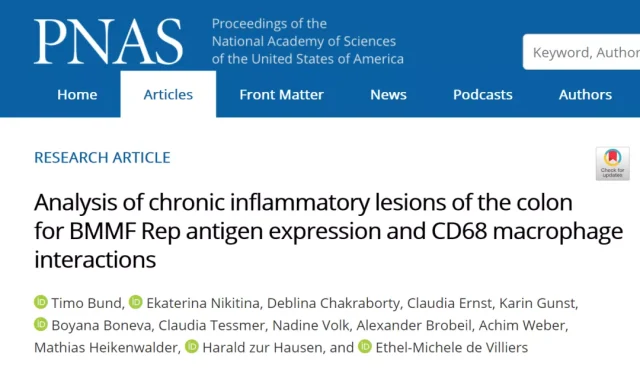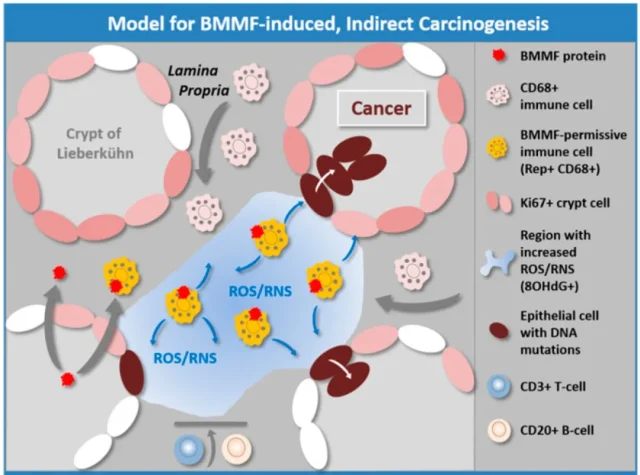Nobel Laureate Reveals Cause of Indirect Carcinogenicity in Milk/Beef
- Why Botulinum Toxin Reigns as One of the Deadliest Poisons?
- FDA Approves Pfizer’s One-Time Gene Therapy for Hemophilia B: $3.5 Million per Dose
- Aspirin: Study Finds Greater Benefits for These Colorectal Cancer Patients
- Cancer Can Occur Without Genetic Mutations?
- Statins Lower Blood Lipids: How Long is a Course?
- Warning: Smartwatch Blood Sugar Measurement Deemed Dangerous
Nobel Laureate Reveals Cause of Indirect Carcinogenicity in Milk/Beef
- Red Yeast Rice Scare Grips Japan: Over 114 Hospitalized and 5 Deaths
- Long COVID Brain Fog: Blood-Brain Barrier Damage and Persistent Inflammation
- FDA has mandated a top-level black box warning for all marketed CAR-T therapies
- Can people with high blood pressure eat peanuts?
- What is the difference between dopamine and dobutamine?
- How long can the patient live after heart stent surgery?
Nobel Laureate Reveals Cause of Indirect Carcinogenicity in Milk/Beef: They Carry a Novel Pathogen
Harald zur Hausen, a famous German scientist, once discovered that certain types of papillomavirus(HPV)arethe causative agent of cervical cancer, which laid the foundation for the development of a cervical cancer vaccine , so obtained won the 2008 Nobel Prize in Physiology or Medicine .
As early as more than 10 years ago, Nobel Prize winner Zur Hausen discovered through big data that the consumption of beef and milk is related to the development of cancer, especially colorectal cancer . Zur Hausen believes that pathogens contained in beef and milk may be causing the cancer.
A few years ago, a research team led by De Villiers at the German Cancer Research Center identified a novel pathogen in dairy products and bovine serum, a form of circular DNA that showed genetic sequences from certain bacterial plasmids. great similarity. Because they are derived from beef and milk, the research team named them BMMF (Bovine Meat and Milk Factors) .
So, does the novel infectious agent BMMF found in dairy products and bovine serum play a role in the development of colorectal cancer ? To figure this out, Zur Hausen teamed up with D e Villiers .
On March 15, 2021, Zur Hausen and the team of De Villiers published a paper entitled: Analysis of chronic inflammatory lesions of the colon for BMMF Rep antigen expression and CD68 macrophage interactions in the the National Academy of Sciences ( PNAS ) .
The research team discovered the presence of BMMF (beef and milk factor) in cells adjacent to tumors in colon cancer patients , and further discovered that BMMF triggers localized chronic inflammation that leads to elevated levels of reactive oxygen species (ROS) , which in turn trigger genes Mutations that contribute to the development of cancer in the long term .
The study supports a causal relationship between milk and beef consumption and the development of colorectal cancer . The research team also said that BMMF should be considered an indirect carcinogen and that people with early detection of BMMF should be screened for colorectal cancer in a timely manner. check.

The research team found that BMMF (beef and milk factor) can multiply in human cells and produce the protein product Rep in human cells that it needs for reproduction . But what role do they play in the development of colorectal cancer? And how does it work?
The research team took a closer look at this question using tissue samples from colorectal cancer and healthy intestines. Using an antibody against the Rep protein, the team detected BMMF in 15 of 16 colorectal cancer tissue samples .
Surprising discovery
The team was surprised to find that tests showed that it was not the cancer cells themselves that contained the Rep protein, but cells near the tumor that contained the Rep protein . The presence of Rep proteins was detected in the lamina propria, the connective tissue that lies beneath the intestinal mucosa, particularly near the intestinal crypts .
The research team also successfully isolated BMMF DNA closely related to pathogens isolated from milk samples from these Rep-positive cells .
Does BMMF trigger chronic inflammation?
The research team speculates that the presence of BMMF may trigger chronic inflammatory processes in intestinal tissue. One sign of inflammation is the presence of pro-inflammatory macrophages, which are actually found near the tumor.
What’s more, the research team found that the signals of Rep protein and macrophage marker CD68 protein were almost identical, and Rep protein was present around or in macrophages .
Is the presence of BMMF and the resulting chronic inflammation associated with colorectal cancer?
The team next looked for the combined Rep/CD68 signal in colorectal cancer samples and compared it to colorectal tissue samples from a group of younger, cancer-free controls.
The results showed that in colorectal cancer patients, 7.3% of all intestinal cells in the tumor environment were positive for the combined Rep/CD68 signal. In the control group, the figure was only 1.7%.
The research team also found that elevated levels of reactive oxygen species (ROS) were detected in the environment of Rep-positive cells . Elevated levels of reactive oxygen species can promote the occurrence and development of gene mutations, which are important factors in the occurrence of cancer.
Are these inflammations linked to cancer?
The research team found that these inflammations were particularly localized near the intestinal crypts , which are home to intestinal stem cells responsible for the constant regeneration of the intestinal mucosa, which in turn produce large numbers of progenitor cells that divide rapidly and are subject to promoting mutations. of inflammation. The more mutations that accumulate, the higher the risk of genes that cause cells to divide and grow out of control.
Many previous studies have demonstrated that chronic inflammation can cause cancer , a well-known example being chronic inflammation caused by hepatitis C virus infection leading to the development of liver cancer .

Is BMMF an indirect carcinogen?
For these findings, Zull Hausen believes that BMMF from beef and milk, which should be considered an indirect carcinogen , may act on dividing cells of the intestinal mucosa for decades, by causing chronic inflammation, promoting genes Mutation, causing cancer . He also said that BMMF infection can often occur early in life, around weaning.
In the end, Zull Hausen said the findings support their previous hypothesis that milk and beef consumption is causally linked to the development of colorectal cancer , and that the findings also open up the possibility of preventive interventions for colorectal cancer , for example, for people with early detection of the presence of BMMF, they should be screened for colorectal cancer in a timely manner.
Paper link:
https://www.pnas.org/content/118/12/e2025830118
Nobel Laureate Reveals Cause of Indirect Carcinogenicity in Milk/Beef
(source:internet, reference only)
Disclaimer of medicaltrend.org
Important Note: The information provided is for informational purposes only and should not be considered as medical advice.



